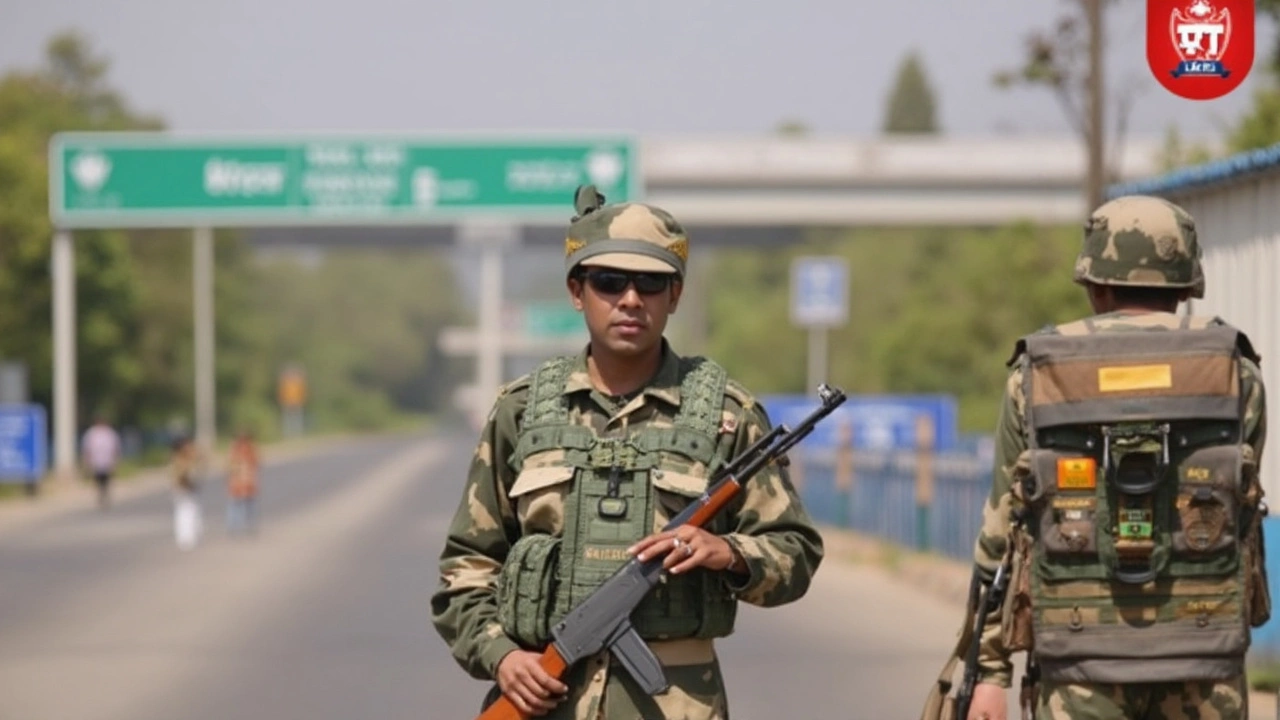
Lights Out in Gurdaspur: Security Blackout Hits Border Town
If you live in Gurdaspur, you know the drill: from 9 PM to 5 AM, the town is plunged into total darkness. The blackout began on May 8, 2025, and doesn’t seem likely to end anytime soon. People here can’t even switch on a torch near their windows—anything that might give away their location is out of bounds. The only places allowed to keep the lights on? The central jail and a few hospitals, but even they have to block every ray so it doesn’t sneak outside.
The reason? Gurdaspur hugs the border with Pakistan. You can practically see the barbed wire if you squint hard enough. This slice of Punjab sits next to two of the state’s main rivers, the Beas and Ravi, and just a short drive from the Ranjit Sagar and Pong dams. Those dams aren’t just massive; they’re also critical for water and electricity. That makes this district a top target if things go wrong on the border.
The blackout order wasn’t made lightly. Deputy Commissioner Himanshu Aggarwal’s instructions are crystal clear: not a single light should escape between sunset and sunrise. His biggest worry? Someone on the other side of the border spotting a glow and making plans the rest of India would rather avoid. People have been told: don’t share rumors, double-check everything you hear, and above all else, keep those lights off, even if it makes everyday life harder.
The Tension Behind the Switch-Off
What really amped up the anxiety were events just hours earlier. On May 7, Indian forces launched Operation Sindoor, targeting suspected terror groups across the border in Pakistan after fresh threats surfaced. Suddenly, the border towns weren’t just living close to the line—they were in the spotlight. Punjab Police have been pushed into high gear. They’re working hand-in-glove with the Indian Army, acting as a so-called 'second line of defense,' patrolling roads, checking every suspicious move, and making sure no one gets too close to the sensitive rivers and dams.
Locals are split. Some take the blackouts in stride—just another chapter in Gurdaspur’s complicated relationship with the border. But for others, the darkness brings unease. One man summed up the local mood: 'It won’t surprise me if this becomes the new normal. We’ve seen blackouts before, but this feels different—more serious.'
Daily life has changed. Shops close early, families huddle indoors, and everyone gets a little jumpy at the sound of a distant car. What keeps people up at night isn’t just the lack of Gurdaspur blackout. It’s the nagging feeling that the border could flare up at any moment, and that, this time, things may not switch back to how they were.
Authorities are pulling out all the stops to keep things calm: official vehicles patrol neighborhoods, volunteers and police are stationed near key spots, and promises of safety echo on loudspeakers. For now, Gurdaspur waits, eyes adjusting to the dark, and ears tuned to every new whisper about what might come next over the border.